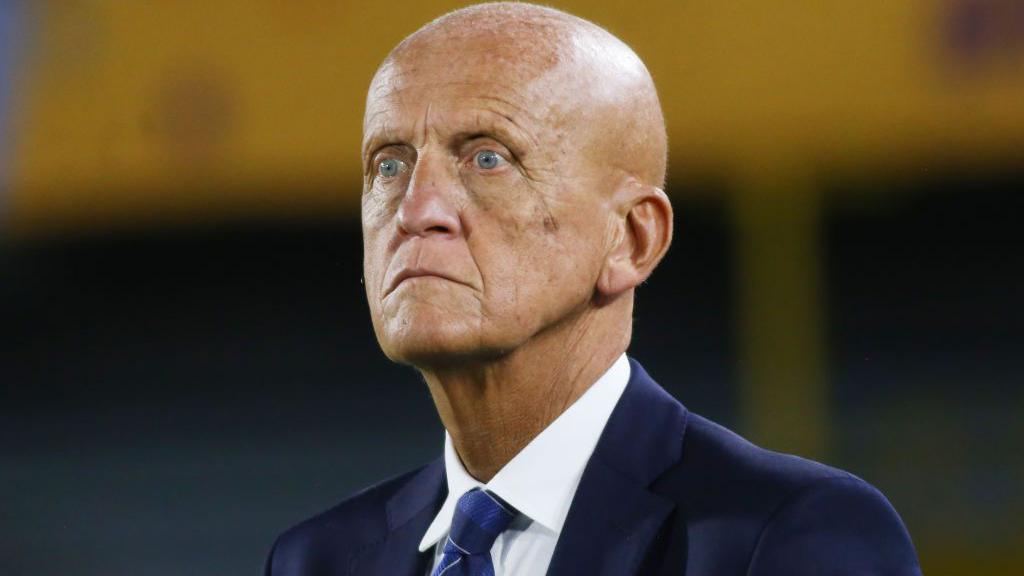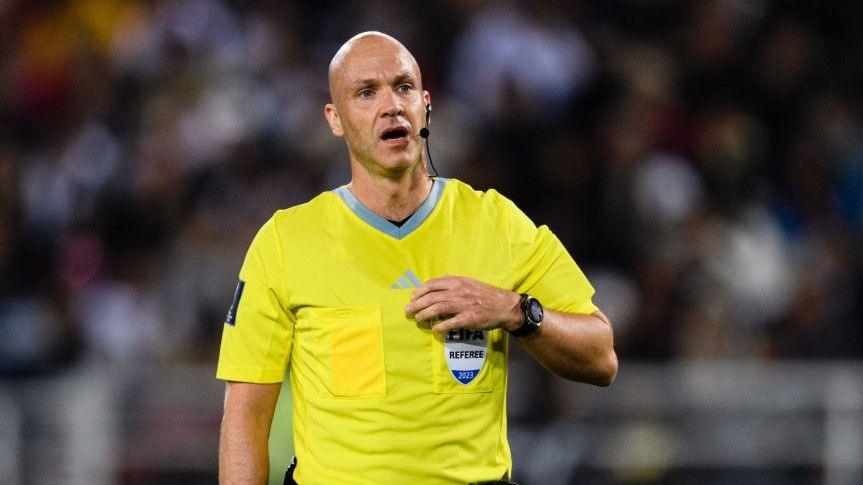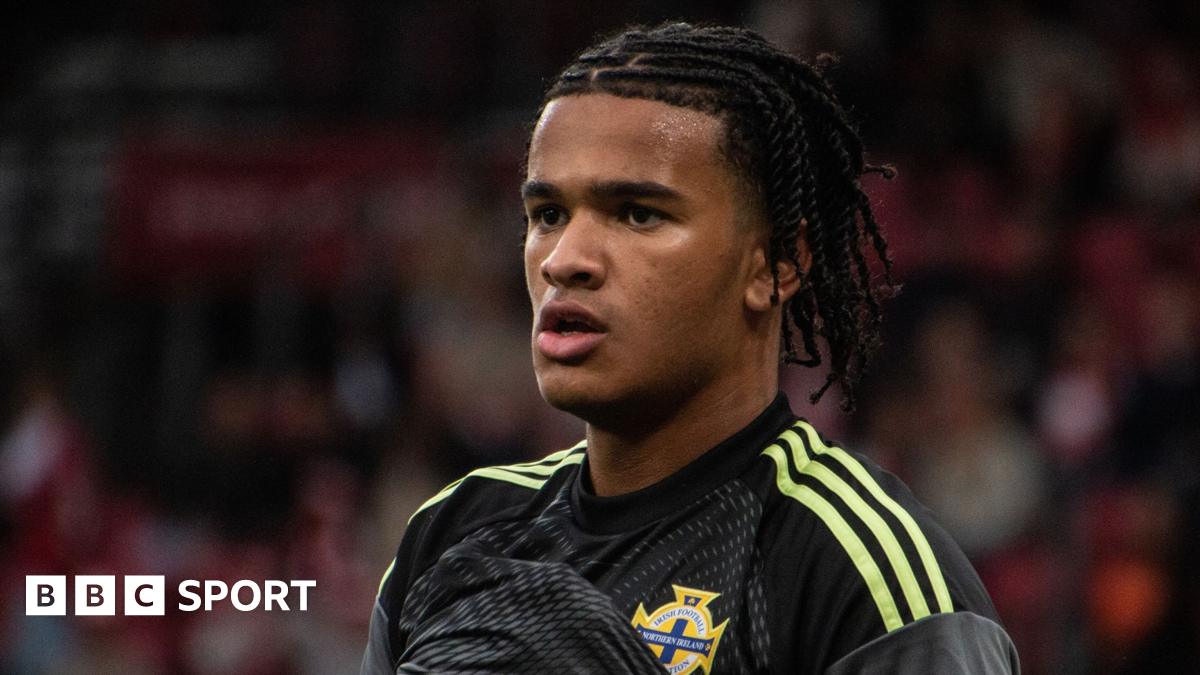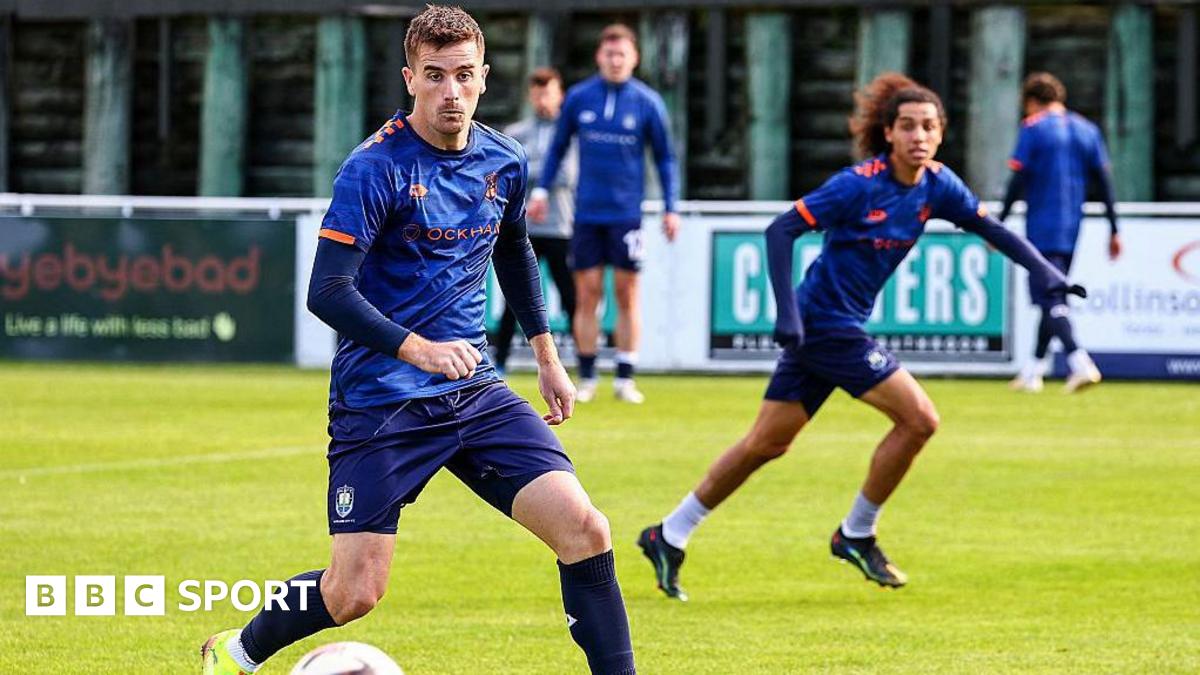ARTICLE AD BOX
 Image source, Getty Images
Image source, Getty Images
Pierluigi Collina was named the world's best referee six times during his career
Chief football news reporter
International referees' chief Pierluigi Collina has told officials to be "braver" with their offside decisions at the Club World Cup despite the introduction of speeded up semi-automated offside (SAO) technology.
The enhanced SAO is programmed to notify assistant referees immediately with an 'offside, offside' message in their ear when a player who is more than 10cm offside touches the ball.
This is quicker than the current SAO technology, which has to take into account actual positions before making a decision.
SAO was only introduced into the Premier League on 12 April, before which the video assistant referee (VAR) made all offside rulings.
It is one of a number of initiatives that will be used at the Club World Cup in the United States, which starts on Sunday. Others include:
Referees wearing body cams that allow live pictures to be shown immediately before the game.
An eight-second countdown for goalkeepers to release the ball.
Referees making in-stadium announcements to explain VAR decisions, and the VAR pictures being shown to fans in real time inside the ground.
The introduction of the enhanced SAO comes a month after Nottingham Forest striker Taiwo Awoniyi suffered a serious abdominal injury after crashing into a post during their Premier League draw against Leicester.
He had been chasing the ball despite a clear offside that had not been given.
In the aftermath, Awoniyi's team-mate Ola Aina said the injury "would never have happened" had the assistant referee raised their flag earlier.
The enhanced element of SAO will not work in situations where a player who doesn't play the ball is offside, or in a crowded situation, so Collina says officials need the courage of their convictions.
"Since the very beginning we have told the assistant referee 'in case of doubt, keep the flag down'," said Collina, the Italian World Cup final referee who is now chairman of world governing body Fifa's referees' committee.
"If you raise the flag, it kills everything, including the possibility that the VAR can help you.
"But we are aware this has led to some consequences.
"Probably the assistant referees went a bit far. What was a doubt became bigger and bigger and bigger. There are possible offside incidents where top assistant referees, as there are in many competitions around the world, would not have this doubt.
"Despite the introduction of this [technology] we have also reminded our assistant referees to be a bit braver and more courageous in putting the flag up when the offside is offside. Two metres offside cannot lead to a doubt."
Countdown for goalkeepers
A new plan to speed up the game will be implemented both at the Club World Cup and the European Under-21 Championship, in which referees will only allow goalkeepers eight seconds to release the ball.
The time will start once the goalkeeper has control of the ball.
After three seconds, the referee will raise his hand in the air and count down from five to notify the goalkeeper he has to release. If he fails, the attacking side will be awarded a corner.
Collina believes it will largely be a preventative measure and said a corner had been awarded twice in 160 games when it was trialled in South America.
However, he feels it necessary given the amount of time some goalkeepers are taking to release the ball.
"The referees should be flexible," he said. "If a goalkeeper has the ball for 8.1 seconds it is not necessarily a corner.
"But we have had a lot of instances of goalkeepers keeping the ball for 25 seconds. There is nothing entertaining about that."
 Image source, Getty Images
Image source, Getty Images
Premier League referee Anthony Taylor took charge of the 2022 Club World Cup final and, along with Michael Oliver, is one of two English referees who will be in the United States
VAR decisions explained but discussions won't be heard
As in previous Fifa tournaments, the on-pitch referee will communicate VAR decisions and the reasons for them to supporters inside the stadium.
For the first time, fans at the match will be able to see the replays the officials are being shown.
However, there will still be no broadcast of the actual discussions taking place in the VAR hub.
Collina is urging patience to those who cannot understand why football is not yet implementing something commonplace in other sports like rugby, cricket and all the major American sports.
"I cannot tell you if something more might be added in the future," he said. "But we need to do it when we are sure this will not affect the decision-making process.
"When they are doing their job, which is very difficult, the VARs and the referees are under pressure. Knowing everyone is listening may add some pressure.
"We are a work in process. We have not to forget that although VAR feels as though it has existed forever, the first match with it was 2016.
"We have to be patient."
Live images from bodycams - but only before game
Fifa have pledged to show live images from the referees' bodycams - which will be attached to their earpieces - before the game, both in the tunnel and during the warm-up and coin toss.
However, there will be no live images shown during the game and although goals and moments of skill will be shown with a delay, anything controversial or in bad taste, such as a player suffering a nasty injury, will not appear.
Although the images would be available to VAR, Collina cannot see how a camera next to a referee's eye would detect something the official had missed.
What it will do, Fifa believe, is show the game from a unique vantage point and "enhance the storytelling".
To that end, it is an entertainment concept.
"That is clear," said Collina.

 1 day ago
7
1 day ago
7








 English (US) ·
English (US) ·